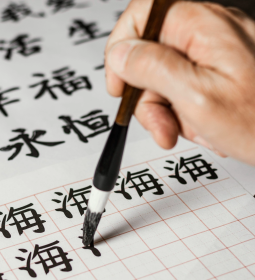You can learn more or less effectively. Tell me, at school or university, did you plan your working week so that the loads were more or less bearable, and the tasks did not overwhelm you? Or did you do everything on the last day, and then slept in lessons or classes?
It's no secret that over the millennia, people have come up with dozens of interesting and original ways to remember the necessary information. Unfortunately, this is not taught at school – at best, some schoolchildren and students arrive at this valuable idea by "empiricism", by experience. You have to solve the situation on your own.
Most often, as an object for imitation, the child uses the parental experience that is relevant to him. This is also confirmed by a recent study by a group of Japanese, German and British scientists, published at the end of last year in Learning and Instruction (this is the most authoritative international journal for teachers and methodologists).

Why study it at all?
It is known that the key to successful immersion and independent work in any profile is high motivation. If a schoolchild is interested, he will achieve great results, but he will dig to the very depths! On the other hand, if not, then the whole educational process turns into a simulation: at best, the topic will be jagged, but it will evaporate from memory before the end of the quarter.
Another important factor is time. If it is lacking or if the background is a stressful situation, the effectiveness of any learning strategy is significantly reduced.
At the same time, the children themselves, of course, strive for efficiency – they would gladly use any effective methods instead of cramming to reduce efforts and improve the result! The trouble is the lack of information and subjectivity: the usual but time-consuming methods seem more reliable and logical to the child and his parents than mnemonics or other tricks, because you can make a mistake in something or miss a significant detail.
Teachers play an important role in determining strategies. If mechanics and numbers in the report card are important to the teacher, the story is one thing, and if independence of judgment, and activity are valued in the lesson, then it is completely different.
However, it is wrong to blame everything on teachers! As the study showed, parents also play a huge role in determining effective learning strategies, determining the child's self-esteem, forming discipline and self-discipline, which directly affects the final results. Even due to simple and uncomplicated "propaganda" about the importance and usefulness, the relevance of this or that object in real life, you can achieve amazing results, especially if you "promote" not only and not so much children, but their parents.
Let us return, however, to the study.
- First of all, let's talk about how it was conducted. The sample was made in Japan, 200 families with children aged 13-15 years were selected to participate in the experiment; 160 parent-child pairs included the mother as a parent.
- Parents and children were given the same questionnaire, asking them to rate on a five-point scale how effective they thought certain academic strategies were. The choice was quite wide, for example, for mathematics there were more than 20 educational models.
- Parents assessed how effective the strategy was, and children also noted how often they turned to them.
- In addition, schoolchildren were given a small test for general intellectual and cognitive abilities, and parents filled out a questionnaire about their financial situation and family behavior patterns. They also took into account the progress of children in 5 disciplines and the time that students spent on preparation (children's own words were used as a source of data).
Of course, as is usually done, special questions were introduced into the test to single out respondents who are inclined to give the answers that are expected of them.
Outcomes
Processing the results made it possible to establish that children and parents in the same family usually evaluate the same strategies positively and they tend to turn to them in practice. Usually this is work with a textbook, cramming and re-reading, as well as targeted preparation for exams.
On the other hand, few people are inclined to solve mathematical problems on their own, without supervision — it seems unattractive and not very useful.
In general, most often schoolchildren and their parents turn to difficult and energy-consuming practices, considering them optimal in terms of effectiveness.
Even more interesting were the results of the second survey, conducted with some of the respondents some time later: at the time of the second survey, the ways of cognition evaluated positively by parents during the first one received a significant increase in popularity. And vice versa, if the child considered this or that strategy to be effective, he, of course, looked less at the opinion of his parents, but did not move to the practice of complete ignorance.
And what's wrong with that, you say? The children were forced to study the way their parents liked! In fact, how effective the learning strategy will be will determine how successful the child will be and at what point this success will come to him. On the other hand, a critical attitude of parents towards themselves will allow you to avoid many serious mistakes, such as negative attitudes like "I didn't graduate from universities, and you don't need to."











